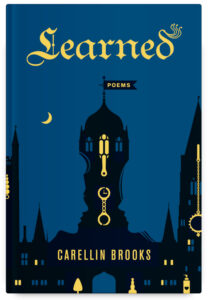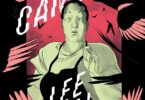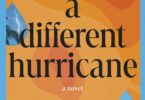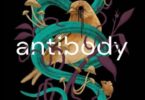Carellin Brooks, Learned (Book*hug Press, 2022), 120 pp., $20.
“Don’t you ever want to disappear?” asks Carellin Brooks’ Learned, a collection of bildungsroman poems that explores the world of a girl-turned-woman living as a Rhodes Scholar in mid-90’s Oxford.
Learned’s story feels familiar to the world of queer lit: Girl attempts to escape her ghosts, girl discovers self in sexuality, girl is changed and finally free of that which haunts her. At the start of Learned we meet the speaker’s ghost: a semi-public history of childhood sexual abuse. This experience pursues the speaker throughout the rest of the narrative, colouring the edges of close relationships and influencing her need to purge herself of everything but pain before finally inhabiting the body sexual.
The speaker’s journey begins in her early twenties, unsure of herself in Montreal. Her transformation begins as she meets her two guides in Oxford: one, a stodgy mentor in an ivory tower, the other an “expressionless young man” who introduces her to safe BDSM play. Both men are described in their respective poems as having “Sandy hair and sketch face.” This provides a clue that these worlds will mirror each other as places of learning. Both guides can reveal the secrets of their respective knowledge to the speaker—if she is willing. Indeed, over her two years at Oxford she goes from considering herself “Neophyte, ingenue, first-timer” to a kink switch who wields the crop with ease.
Brooks turns the two worlds of the academic and sexual into point and counterpoint, playing with the themes of religiosity and ‘deviant’ sexuality in delightful ways. Bars and bathroom sex elicit Catholic ephemera, and erotic moments in dark booths give way to spiritual lightness. Here, even the quietest moments are charmingly bawdy. Brooks leans into them, pulling the reader into the sexual tension of the everyday. In ‘A Cup’ the speaker travels to London in the heat of summer where “[n]apped bus seats, bristles brushing back of bare thighs, sun shifting in window. Joined thighs sticky clasp,/skin to skin, pull, suck.” Across all these moments, Brooks word choice is consistently careful yet daring. It is a world decorated with “humped furniture” and otherwise innocent college ceremonies where even a hand shake involves “[s]lid…fingers against his fleshy mount.” Overall, the reader is left with a breathless sense of eroticism at every turn.
As a reader, my biggest struggle with the narrative wasn’t the craft, but the lack of kink aftercare; the speaker shares with us the intense parts of BDSM—the leather, the whips, the anonymous sex—but none of the sweetness or less sexy parts—gentle touch after a kink scene, necessary check-ins, or the growing intimacy between repeated play partners. Perhaps this omission is intentional, though it’s difficult to tell when not explicitly named. This lack of naming then gives the book an especially hard edge, even among other BDSM-themed titles.
After so much juxtaposition of Catholicism and sex, readers understand the spiritual link of sexual liberation. But then what? As such, there seems a lack of moral or ethical clarity on which to pin the plot. Is there any moral clarity to go with it? Is there any conception of the sexual possibilities lost? As a reader who went through my own strange queer awakening a decade after the speaker, I also naively wondered: Why is everyone so mean to her? Again, the details and omissions are telling—breasts are “impassively examined” with little negotiation of boundaries and a women at a bar assume how she “led a sheltered life” then gives no space to defend herself. As it is, I found myself desperately searching for any kindness at all, happy to find the soft moments with Ginger, a supportive and cheerful girlfriend who offers a momentary anchor amidst the speaker’s sexual awakening.
Finally, the ending leaves questions unrelated to the themes—twenty-five years later, the speaker walks along the streets of Vancouver and does wellness checks on houseless neighbours. As she does so she asks: “Can I save anyone,/least of all/myself?” With this moment, she turns drug users into a symbol for her own journey. Placed alongside Learned’s intensely humanizing intimacy, this poem felt like an abrupt shift. This final thought zooms out so far that the story loses its focus, costing the text some of its potential concluding punch.
Ultimately, though, Brooks weaves her story with meticulous attention to language—the speaker cracks open her world of BDSM for outsiders, baring herself emotionally and sexually for the reader to see, feel, and accept in totality. By the end, the story meets all the reader’s desires for a sexual, religious coming-of-age: the confession is complete, and the speaker may at last be forgiven for her sins.
…
Micah Killjoy was born and raised on coastal Salish land. They are a writer, editor, and BFA student at the University of British Columbia. They enjoy urban exploration, daydreaming, doggo walks, and hopepunk aesthetics.







